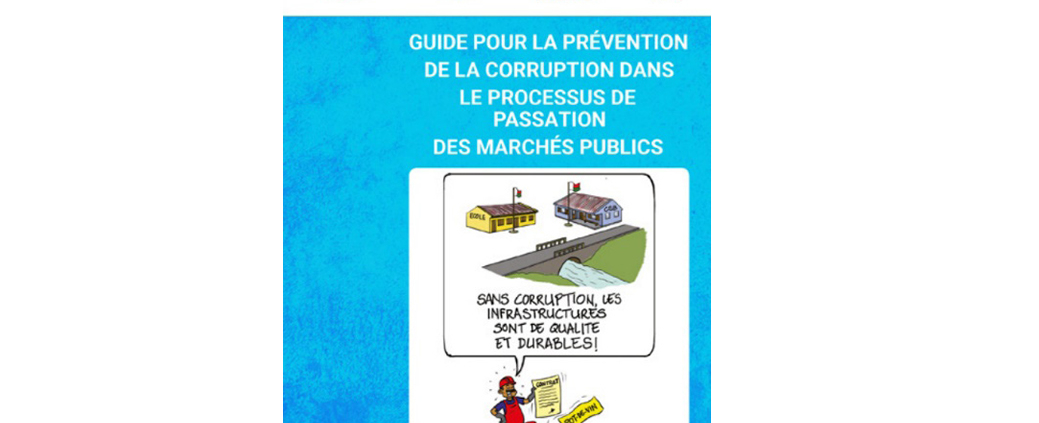Madagascar -PREVENTION OF CORRUPTION IN THE PUBLIC PROCUREMENT PROCESS
A guide to good practice
“Without corruption, infrastructure is quality and sustainable”. The drawing that illustrates the cover page of the guide produced by Bianco and ARMP (Madagascar) is a wonderful illustration of the benefits that can be derived from public procurement processes conducted with integrity and morality, without any corruption. It is precisely to prevent corruption that this richly informative guide has been published. Indeed, as in many countries, in addition to the volume of transactions and the financial interests at stake, the risks of corruption in public procurement are exacerbated by the complexity of the process, the close interaction between public officials and companies, and the multitude of stakeholders.
According to ARMP, corruption has direct consequences such as the loss of public funds due to incorrect allocations or higher spending, as well as poor quality of goods, services and works. In terms of indirect costs, corruption in public procurement distorts competition, restricts market access and reduces the commercial interest of international investors.
In Madagascar, it is clear that the cost of corruption in the public procurement sector is very high. It is for this reason that the Council of Ministers of 20 February 2019, as part of the development of the General State Policy, hammered out “zero tolerance and exemplary penalties for corruption: all officials must be models of integrity and uprightness. This is a guarantee of the restoration of confidence in the State, the guarantor of social peace. The public procurement procedure must be reviewed and scrupulously monitored”. The central challenge is to reduce the potential risks of corruption throughout the process and to ensure compliance with the main principles of public procurement, namely transparency of candidates and freedom of access to public contracts. At present, the Autorité de régulation marchés publics (Armp) is moving towards reforming public procurement procedures by digitizing them. This desire to clean up the system will undoubtedly help to reduce the risk of corruption in this area. It is with this in mind that the Guide has been drawn up, bringing an ethical approach to the fight against corruption in public procurement.
The Guide is structured around two points. The first point sets out the principles of public procurement, which must be based on fairness, integrity, impartiality and equity, transparency and confidentiality. The second point sets out good practice. These include avoiding corruption, conflicts of interest, illicit gifts, fraud, coercion and connivance, unfair competition and the appearance of impropriety




